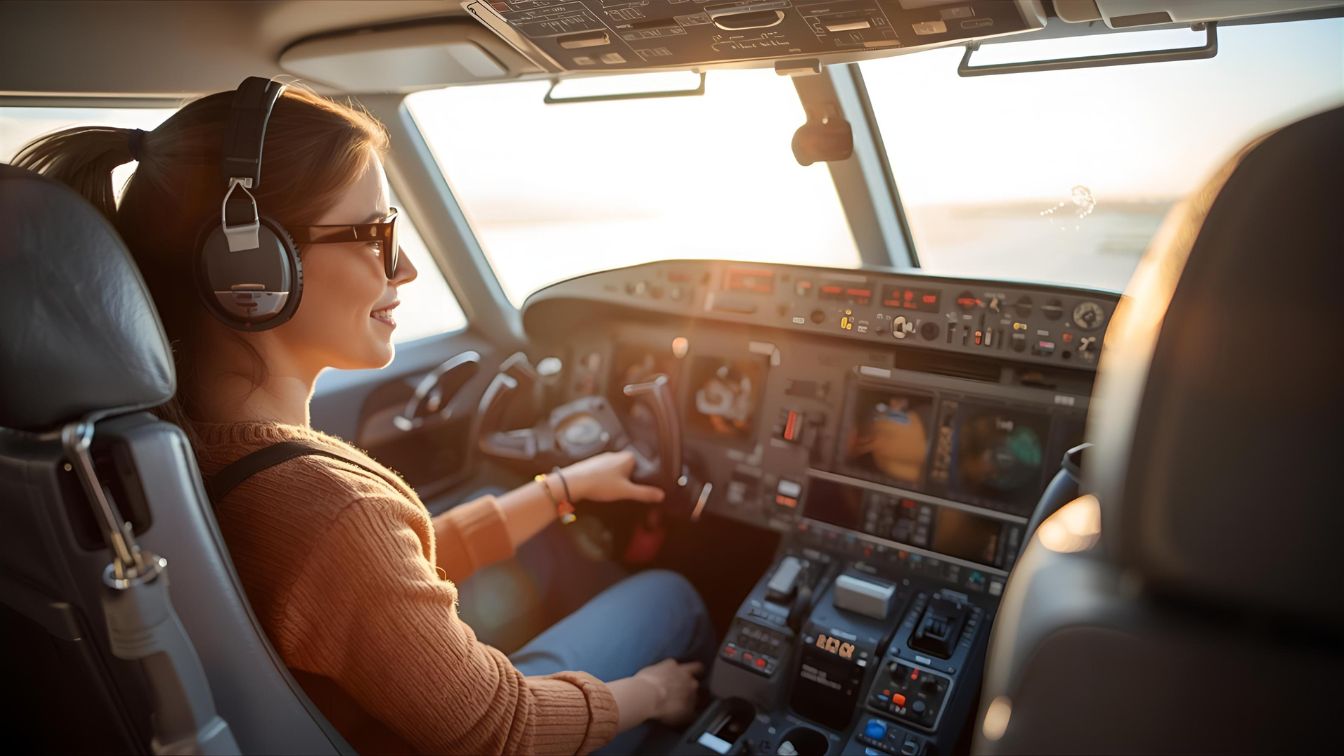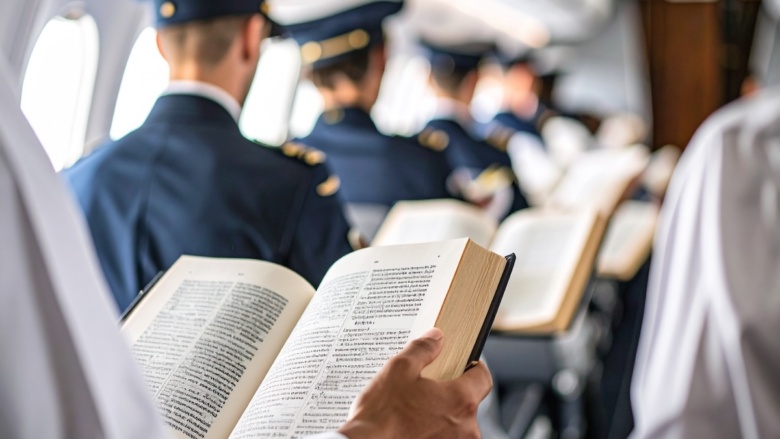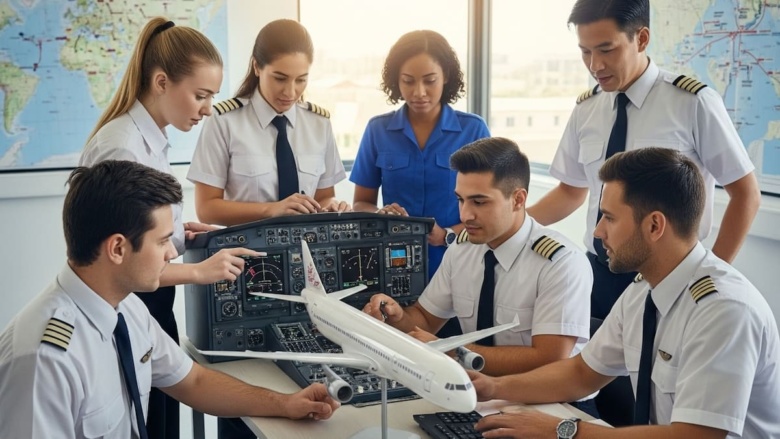Aviation has always been more than just a job. For a lot of people, it’s a calling that combines adventure with duty, accuracy with passion and chances to grow as a person with chances to travel the world. As India’s aviation industry grows quickly, there is a growing need for skilled workers in many areas, including flying, ground operations, safety management and aircraft maintenance.
But this is where the problem arises. There are so many aviation courses out there these days. How do you know which one is right for your career goals? Choosing the right course is like making a flight plan: if you do it right, it will take you exactly where you want to go.
This blog will help you figure out which aviation course is best for your career goals, so you can start your journey into this exciting field on the right foot.
Understanding the Scope of Aviation Careers
It’s important to understand how many different jobs there are in aviation before looking into the courses. Pilots get a lot of attention, but the industry needs a lot of different kinds of professionals to keep the skies safe and operations running smoothly. You might find your place in:
- Pilot training if your dream is to fly commercial or charter aircraft.
- Cabin crew training if you love hospitality, travel and people management.
- Aircraft maintenance engineering (AME) if you enjoy technical problem-solving and working with complex machines.
- Ground handling and airport operations if you want to be at the heart of airport logistics and passenger services.
- Aviation management if you see yourself leading teams and shaping airline business strategies.
Begin with a Self-Assessment
To choose the right aviation course, you need to know yourself first. You can ask questions like:
- Do I like working with machines or do I like talking to people more?
- Do I want a job that is glamorous and fast-paced, or one that is technical and stable?
- Am I okay with the high cost of pilot training?
- Do I want a job that requires a lot of travel, or do I want to work closer to home?
You can get rid of courses that don’t fit with your vision by being honest about your strengths, weaknesses and lifestyle choices.
Find Out What the Eligibility Requirements Are
It’s important to meet the entry requirements for each aviation course. For example, to become a commercial pilot, you usually need to have at least a high school diploma in physics and maths and be medically fit according to DGCA rules. Cabin crew courses, on the other hand, focus more on personality traits, grooming and how to talk to people.
If you look at the eligibility requirements early, you can avoid being disappointed later and get ready in the right way, whether that means studying, going to the doctor or learning a new language.
Because the aviation industry is so tightly controlled, the reputation of your course provider is just as important as the course itself. Always make sure that the school you choose is approved by well-known organisations, like the Directorate General of Civil Aviation (DGCA) in India or the International Civil Aviation Organisation (ICAO) around the world.
A certificate from a recognised school not only makes your resume look better, but it also makes sure that your training meets international standards, which gives you an edge over other candidates.
Evaluate the Course Structure and Training Facilities
An aviation course is not just about learning; it’s also about doing. Look closely at the curriculum when you make a list of schools. Does the pilot training include time spent in a simulator and in the air? Are there safety drills and first aid training in the cabin crew programme? Are there internships at airports or airlines as part of the aviation management course?
The quality of the training facilities makes a huge difference. The programme is serious because it has a well-equipped simulator lab, modern classrooms and connections with airlines and airports.
Consider the Career Opportunities After Completion
The goal of any professional course is to get good job offers. Look into the types of placements, internships and connections to the industry that each school offers. Some training schools work with airlines, which can help you get interviews or apprenticeships more easily. Some people may offer you career advice and soft skills training to help you get ready for interviews.
If you can, don’t be afraid to talk to alumni. Their experiences often show how well the training really works to shape careers.
Ask Experts for Help
Even after doing research, the decision may still seem too big to handle. This is when you need expert help. Aviation schools like INFINIFLY AVIATION often hold career counselling sessions to help people who want to work in the field make smart decisions. Talking to people who work in the field or who have been there before can help you understand things that brochures and websites can’t.
Concluding Thoughts: Have Faith in Your Flight Path
Getting ready for takeoff is like picking the right aviation course. You need the right help, the right checks and the right direction. Begin by thinking about what you want to do, looking into the requirements for admission and carefully comparing schools. Keep your long-term goals in mind, make smart financial decisions and ask for help when you need it.
We at INFINIFLY AVIATION think that everyone who wants to work in aviation should start their journey with clarity and confidence. You can make your dreams of flying or working in the aviation industry come true. The most important thing is to pick the right course for you.




